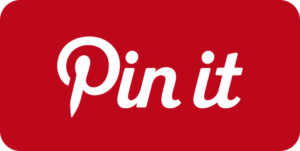Quick links, bringing you great articles on writing from all over the web.
The wonderful Jamie Gold goes over the potential and pitfalls of using real world references in your story. A must read if you have ever considered doing this!
~ * ~
Pros & Cons: Referencing the Real World in Our Story
 I’ve often mentioned that I appreciate questions from readers (even though I can’t answer them all, especially with my health issues this year). Every question gives me ideas for potential blog posts, and today I’d like to thank Lee Green for the idea for this post (and Julie Sade for encouraging me to write it). *smile*I’ve run into the issue Lee mentions within my work as well, so I’m glad her question forced me to think deeper about the pros and cons. As with many things, we might answer one way at first glance but later discover a different angle that changes our opinion.
I’ve often mentioned that I appreciate questions from readers (even though I can’t answer them all, especially with my health issues this year). Every question gives me ideas for potential blog posts, and today I’d like to thank Lee Green for the idea for this post (and Julie Sade for encouraging me to write it). *smile*I’ve run into the issue Lee mentions within my work as well, so I’m glad her question forced me to think deeper about the pros and cons. As with many things, we might answer one way at first glance but later discover a different angle that changes our opinion.
“In a WIP, is it OK to have the lead female reading and maybe referring to a book written by a real life current author and naming that author, title of book and maybe a sentence from the book?”
That is a fantastic question that got my brain spinning in multiple directions. On the surface, it’s a question about copyright (and maybe the right to publicity), but deeper down, it’s a question about the relatability of our story and character. Let’s take a closer look…

 Finding an audience for your books can seem like an insurmountable task when you enter the publishing space with no prior experience. Thankfully, Twitter can help you become not only an engaged member of the community but—in time—an influencer with a loyal audience.
Finding an audience for your books can seem like an insurmountable task when you enter the publishing space with no prior experience. Thankfully, Twitter can help you become not only an engaged member of the community but—in time—an influencer with a loyal audience. Would you like to create memorable characters? Of course you would!
Would you like to create memorable characters? Of course you would!
 by K.S. Brooks
by K.S. Brooks From our earliest moments, most writers are avid readers. We devour books – for story, for Craft, for new worlds and new ideas.
From our earliest moments, most writers are avid readers. We devour books – for story, for Craft, for new worlds and new ideas.
 In this podcast episode, Chris Ducker sits down with Jay Baer to learn exactly how to become a New York Times bestselling author! Get your notebooks ready!
In this podcast episode, Chris Ducker sits down with Jay Baer to learn exactly how to become a New York Times bestselling author! Get your notebooks ready! You’ve written a great book and—if you’ve self-published—probably shelled out for the services of a good editor and cover designer. The last thing you want is to pay for a publicist. But in a sea of authors, how will potential readers know about your book?As a traditional-turned-hybrid author publishing with She Writes Press, I foot the bill for all the publishing costs but reap a much higher percentage of royalties for both print and ebook sales for my debut memoir,
You’ve written a great book and—if you’ve self-published—probably shelled out for the services of a good editor and cover designer. The last thing you want is to pay for a publicist. But in a sea of authors, how will potential readers know about your book?As a traditional-turned-hybrid author publishing with She Writes Press, I foot the bill for all the publishing costs but reap a much higher percentage of royalties for both print and ebook sales for my debut memoir,  Almost every single Indie author that I know is on Facebook. Most of us spend time trying to sell our books to our friends, and many authors I know still insist on spending time copying and pasting a generic post to 20 or 30 Facebook groups and hoping that it will get them sales. STOP. There is a better way.
Almost every single Indie author that I know is on Facebook. Most of us spend time trying to sell our books to our friends, and many authors I know still insist on spending time copying and pasting a generic post to 20 or 30 Facebook groups and hoping that it will get them sales. STOP. There is a better way. By
By  by Shelly Hitz
by Shelly Hitz Part of the Indie Author Series
Part of the Indie Author Series Nothing can strike fear in the hearts of writers like editing. But if you’re going to improve your story, a thorough book edit is something that must happen. With the right tools, mindset, and preparation, it doesn’t have to be scary at all!
Nothing can strike fear in the hearts of writers like editing. But if you’re going to improve your story, a thorough book edit is something that must happen. With the right tools, mindset, and preparation, it doesn’t have to be scary at all! Today’s guest post is by top Amazon reviewer Gisela Hausmann. This content originally ran on the Huffington Post, and it is reprinted here with her permission.
Today’s guest post is by top Amazon reviewer Gisela Hausmann. This content originally ran on the Huffington Post, and it is reprinted here with her permission.